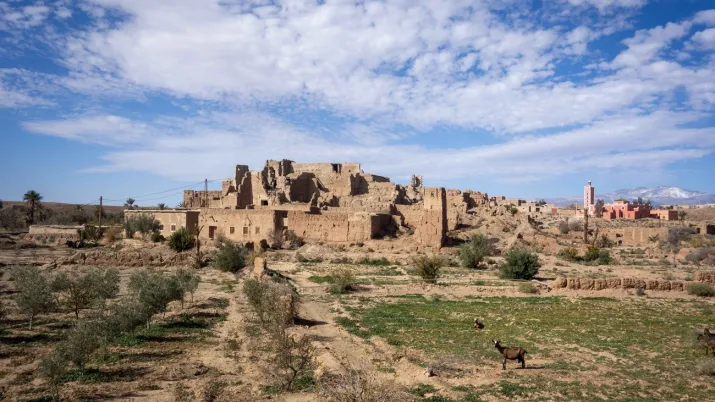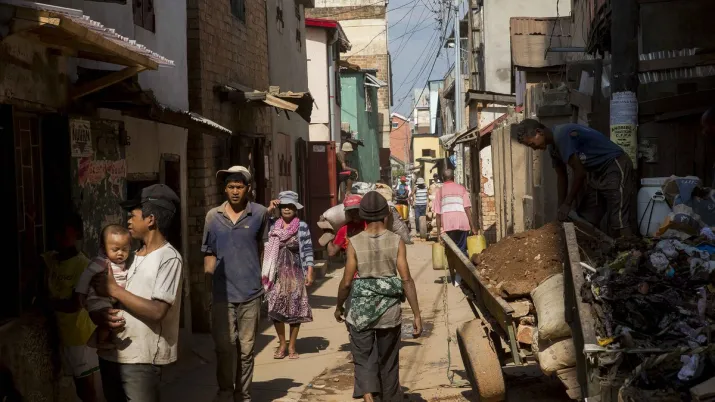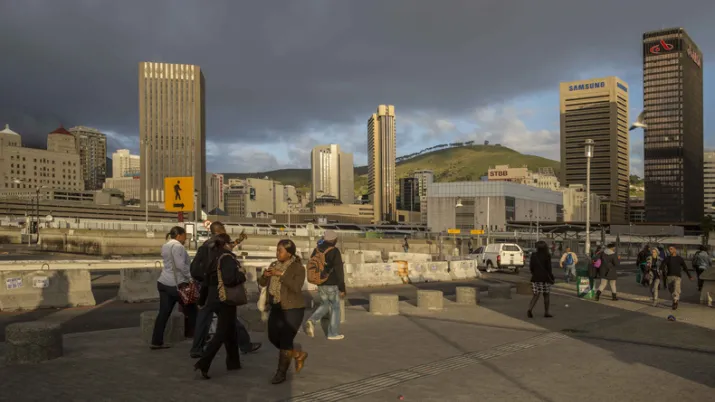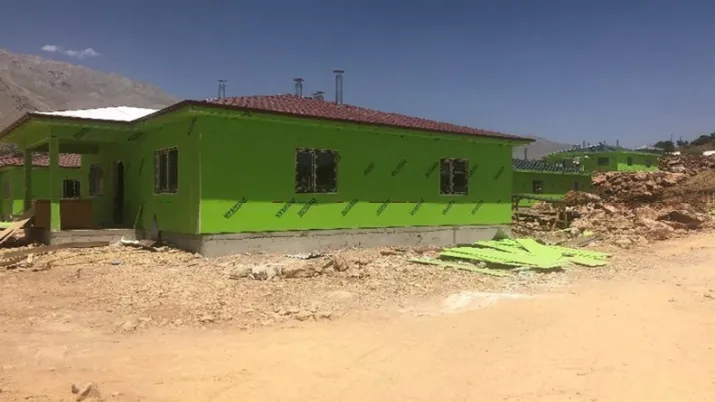Share the page
Sustainable Cities
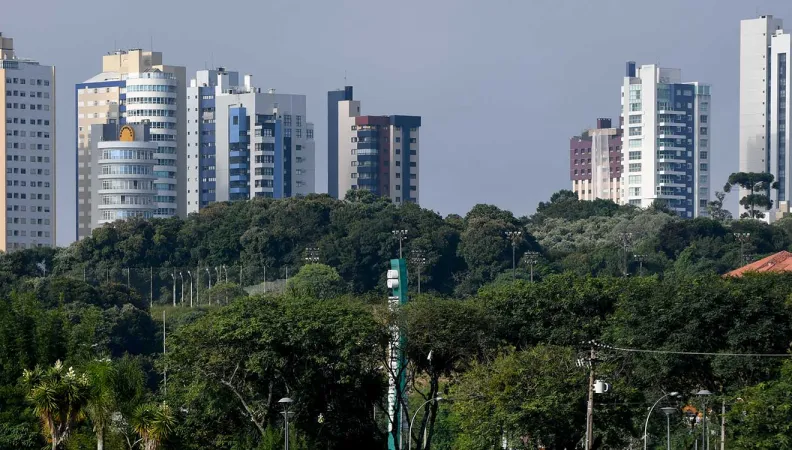
Our commitment
Everyone who lives in a city deserves to enjoy a decent quality of life and the social and economic opportunities provided by controlled urbanization. That’s why AFD promotes and supports the development of sustainable cities. These cities are open to everyone, men and women; they are safe, efficient, and resilient. They ensure equitable access to essential services, to simple, effective modes of transportation, and to jobs, and they reduce the insecurity and vulnerability of their residents to risks including climate change.
Sustainable cities: living better while caring for the environment
AFD and sustainable cities: supporting urban transitions
Enabling all city dwellers to live a decent life is one of AFD’s strong commitments. Achieving this goal requires working to promote access for all to essential facilities and services: water and sanitation, solid waste collection and management, public power and lighting, and high-quality public green spaces. For AFD, it also includes acting to improve and diversify the housing offered.
Vectors of public health, dignity, and the emancipation of women, sustainable and non-discriminatory access to these services facilitates involvement in the social and economic life of the region. Conversely, when these services are lacking or of a poor quality, the result can be segregation, environmental degradation, and instability.
Depending on the context, this means developing networks and services that are:
- inclusive and therefor accessible to all, which means to be well-served and at appropriate rates, as in Dacca, Bangladesh and Manila, Philippines,
- sustainable, thanks to solutions that are lower-emitting and protect natural resources,
- safe and secure, including for women, children, and those living with disabilities,
- well-managed for quality performance.
In order to fight inequality and poverty, special attention will be paid to regions that are insecure, disadvantaged, and/or outlying.
Mobility systems for people and goods contribute to the organization and functional effectiveness of the city and to the regional inclusion of city dwellers, to guarantee the same economic and social opportunities for everyone. However, the negative externalities related to travel within the city are significant: poor accessibility, congestion, reduced air quality, unsafe road conditions, and uncontrolled CO2 emissions.
To build sustainable urban mobility systems, AFD:
- works to promote more compact, mixed-use cities that limit the number and length of journeys by supporting its local and national partners in urban mobility planning, with initiatives such as Mobilise Your City
- promotes “active” modes (cycling, walking, etc.), such as the project it is supporting in Puebla, Mexico
- is committed to developing a range of high-quality public transportation options, comprising mass transit (subway, light rail, BRT, etc.) that is well connected to modes with finer coverage (buses, urban minibuses, etc.), such as in Santo Domingo, Dominican Republic or Kochi, India.
- works to improve air quality and limit the side effects of polluting modes of transport by promoting vehicle sharing; electric, hybrid (like in Peshawar, Pakistan) and biogas motors; modernizing vehicle fleets, etc.
- will systematically include a “road safety” component in its road projects in urban areas.
The combined effects of demographic growth and rapid urbanization have made cities the biggest consumers of energy (2/3 of global energy use and 70% of greenhouse gas emissions).
In order to limit the environmental footprint of cities and reduce their vulnerability to the effects of climate change (which is often very high due to their locations, most often along rivers and lakes or in coastal areas), AFD supports local governments as they define and implement urban development strategies that are low carbon and resilient in the face of environmental risks. To this end, AFD:
- works to help cities adapt to flood risks by financing innovative infrastructure projects, promoting ecosystem solutions (installing permeable ground surfaces, creating storm water basins, revegetation) as in Lomé, Togo, and supporting solutions that help assess risk (data measurement and management systems, digital early alert mechanisms) as in Senegal.
- encourages optimization of urban forms, which are a powerful lever in reducing energy use and improving energy efficiency. As such, it supports initiatives in favor of compact cities in order to reduce per capita energy consumption and infrastructure costs.
- promotes the principles of eco-urban planning: green and blue corridors, short urban food supply chains, and reduced urban air pollution.
Faced with exponential urbanization and the global acceleration of transformations, there is a substantial risk of accentuating regional divides. By helping improve regional cohesion, organizing or reorganizing avenues for communication, discussion, and solidarity, AFD aims to keep its commitments to strengthening social ties and sustainable economic development.
To achieve this, AFD has set two priorities:
- Contributing to the development of intermediate cities, which are experiencing the fastest pace of urban growth even though they are less well equipped than megalopolises in terms of infrastructures, local management capacity, and financial resources.
For example, AFD is increasingly financing national programs designed to make up the deficit in structural investments within these intermediate cities (in roads, commercial infrastructures, urban services, and public spaces) and support their economic development. This is true for Madagascar, Ethiopia, and Cameroon. - Re-energizing city centers to both limit consumption of new natural spaces and curb impoverishment. AFD supports strategies to recapture neglected or deteriorated downtown areas, in Lebanon for example. As such, it supports the development of the offer of subsidized housing, protection of the natural and built heritage, the development of tourism, and the (re)development of structural public facilities.
In a context of wide gaps between investment needs and the financing capacity of local authorities, the challenge is in increasing their financial margin. To this end, AFD’s action is two-fold:
- centrally, AFD is committed to effectively supporting and strengthening decentralization processes, including in the Philippines and in Senegal.
- locally, our efforts focus on building the capacity of local governments and creating sources of income (local taxation), as well as helping them define sustainable urban development plans, such as in Johannesburg.
In terms of financing instruments, AFD is diversifying its offering to adapt to different contexts and help increase the access of local governments to funding (direct loans or on-lending, financing from specialized financial institutions, financial security instruments).
To promote decision-making and partnership initiatives, we:
- encourage participation in our actions by local stakeholders, including women, young people, and the destitute, at every stage in the process of regional planning and during project design.
- develop, in parallel to these long-term actions, quick-implementing and innovative urban planning initiatives to test new uses (downstream) and shorten implementation time frames. We have experimented with this type of agile approach in Tunisia, Burkina Faso and India.
Further reading
The world is urbanizing faster than ever before. Half of humanity (3.5 billion people) now live in cities. That figure will rise to 60% in 2030 and 70% in 2050.This accelerated urbanization, which is particularly pronounced in Africa and Asia, often results in unplanned, inefficient development that leads to extreme inequalities. UN-Habitat estimates that if nothing is done, poorer districts could see their population double (from 1 to 2 billion) by 2030.
More generally, both continents continue to face many challenges: providing access to essential services, limiting congestion, adapting to the effects of climate change, improving economic attractiveness and job creation, boosting resources for infrastructure financing, and improving local governance.
Yet, from the perspective of seeking solutions, the freedom and cross-pollination offered by cities allows them to become social engineering laboratories from which the most innovative and creative solutions emerge. As part of its Territorial and Ecological Transition strategy, AFD is involved in financing, promoting, and supporting the development of sustainable cities that reconcile social cohesion with economic performance and environmental preservation.
In 2022, AFD committed €827 million for sustainable urban development and to support local authorities.
Climate at the heart of the development of African cities
On the ground
Below, you’ll find projects, news, and publications related to this topic — all in one place.
News & events
Madagascar: young people mobilized to improve living conditions in Antananarivo
Published on January 23, 2026
AFD joins the Alliance for Security, Justice and Development in Latin America and the Caribbean
Published on October 17, 2025
Related topics
Key figures
-
827 million euros committed for sustainable urban development and to support local authorities in 2019
-
86% of commitments in 2022 include a gender equality objective in foreign countries
-
6.1 million inhabitants will benefit from an improved quality of life in cities thanks to the projects approved in 2022

